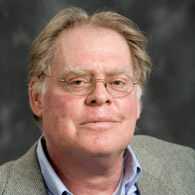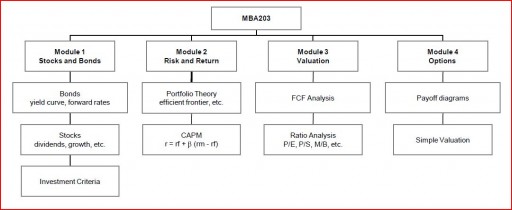在上学期最有意思、也最自豪的事,是参与组织了60个 Berkeley MBA 各国同学在寒假(2010年1月)去中国访问。这次中国行我们称之为 Berkeley Haas MBA China Trek 2010.
Haas的中国学生
由于 Haas商学院的 full-time MBA program 比较小,每年在全球一共只招约 240人(Harvard 每年招900个MBA, Wharton 每年800个, Kellogg, Chicago, Columbia 每年都差不多招600个),所以每年真正从中国大陆来 Haas 读MBA的同学的数目一般是个位数。而每年从台湾来的同学就更少了,况且这几年也没有从香港或澳门来的同学。由于中国同学较少,我们的学生社团里没有单独的 China club,而是有范围更广的环太平洋俱乐部(Pacific Rim Club),就把亚太地区来的同学都算在里面了,呵呵。由于中国同学较少,也没有成制度的、例行的每年去中国旅行访问的安排。
Berkeley Haas MBA China Trek 2009
然而上两届(2009和2010届)的中国同学很热心,他们组织了 China Trek 2009,在2009年的寒假他们带领了40多个Berkeley MBA来中国访问,先后在上海和北京停留了数日,拜访了好些不同行业的公司,和上海、北京的Haas校友联谊,参观了各个景点…… 各国同学的反馈非常好。
Berkeley Haas MBA China Trek 2010
本来我并没有打算在第一学期的寒假回国,但去年8月份一来到Berkeley,就听上一届的同学谈到他们刚组织的 China Trek 2009,我同届的 mandarin speakers 同学也很热心,我想本来咱们这里中国人就少,我们更应该“抱团”,齐心协力组织好这次旅行,于是我也就很投入到组织活动中去。
无论如何,从最开始,这个活动就是我们学生自发组织的,totally student driven,而不是学校官方安排的。
2009年9月份
我们是8月底开学,刚开学后的第五周 9月24日,我们就开了第一次“组委会”会议。组委会成员是四个来自中国大陆的同学,和一位能听说读写非常棒普通话的美国同学。之后隔了几天,在9月28日,我们又开了第二次组委会会议。通过这两次讨论,我们基本明确了中国行的目的、拟安排的活动、组委会的内部分工、以及整体的进度计划。
还记得当时我们讨论的 China Trek 的目的:
Goals/Objectives:
- Improve understanding of Chinese culture and Chinese business environment in Haas community
- Improve connectivity between alumni and current students/the school
- Improve Haas brand in China
- Have fun
我们组委会五个人也有一些大致分工,有人做整体的活动设计,有人做各种沟通(对同学、对学校、对校友……),有人制作沟通的内容(presentations, survey…),有人做 logistics(旅馆、交通、饮食、门票等等),有人负责finance(收钱、花钱的所有安排)。也确定了将在10月12日周一中午,面向全体同学,我们开信息发布会(Information Session). 我们甚至还在学校专门注册了一个 china_trek at berkeley dot edu 的 Email地址。
2009年10月
10月8日,我们给全体同学发了一封信,宣传我们即将举办的信息发布会:
Announcing the China Business Trek…
Join this year’s China Business Trek, and you’ll see China like you’ve never seen it before — through the eyes of your Chinese classmates.
Over the winter academic break, you’ll visit Chinese firms in a variety of industries, meet with Chinese business leaders, and experience the essential elements of Chinese culture, all the while having a great time with your Haas MBA classmates. And we’ll take care of the administrative grunt work so you can focus on what’s really important: expanding your global experience and having a great time — did we mention that already?
Interested? Attend the following event …
Event: China Business Trek Info Session
Time: Monday Oct 12, 12:30-2pm
Location: C210Questions? Contact us at china_trek at berkeley dot edu
Best regards,
Planning Committee
China Business Trek 2010
2010届中国商业旅行计划委员会
10月12日的 Information Session 非常成功,大约50个同学到场,还有大约15个不能来的同学发Email询问,实际上在10月12日当天同时段学校还有一个重大活动(庆祝 Professor Oliver Williamson 获得诺贝尔经济学奖,庆祝活动和我们 China Trek Information Session 在同时段举行)。
接下来我们在网上发布了一个问卷调查,就是想弄清楚同学们的期望。后来根据问卷调查的结果,我们更明白我们应该联系拜访什么公司、安排什么活动。
10月26日周一中午,我们收取定金。有一位美国同学很早就开始排队了,呵呵。后来我们一共收到60多人缴定金。最终是有60位同学。好大的一个旅行团!在上海和北京我们都得租两辆大巴了。呵呵。
2009年11月
开始具体的琐碎的各种策划工作,而我们五个人的组委会也基本上保持每周开一次会:
- 开始收各国同学的护照,一起向旧金山的中国领事馆申请中国签证。
- 开始帮助同学预订来回中国的机票,回答他们有关机场、航线、航空公司、上海北京市内交通等等的各种问题。
- 开始联系很多宾馆,询问价格和住宿情况。
- 开始和国内的 Haas 校友联系。
- 开始和想去拜访的公司联系。
2009年12月
12月7日,距离放寒假前一周,我们给全体同学开了第二次信息发布会。
12月15日,正式开始放寒假,各种琐碎的策划工作继续进行,最终我们在12月中旬拿到了很好的宾馆价格,在圣诞节前几天买到了60张上海到北京的软卧火车票,确定了给同学们每人发的 T恤衫的图案设计,确定了跟校友联谊的时间地点,敲定了拜访各个公司的具体时间和联络人。
2010年1月
元旦前后几天最终确定了每顿饭在哪个饭店吃,呵呵,我们的想法是尽量让各国同学广泛的体验我中华美食,所以我们预订了各种菜系的饭店。我们尽量去每个饭店踩点,预付定金,确认就餐环境、周围交通是否合适,确认周围能不能停两辆大巴车…… 我们还购买了一些预付费手机电话卡准备发给同学们用。
2010年1月2-5日,大多数同学陆陆续续从世界各地抵达上海。
2010年1月6日早晨,我们的 China Trek 正式开始。虽然前几天北京暴雪,有好几个同学从北京中转到上海的航班被延误,导致他们在6号上午才到达上海。但6号我们依然开局顺利。6号早上去登高新落成不久的上海世界金融中心,天气非常好,俯瞰浦江两岸的风光还是很不错的。
2010年1月9日晚上,登上动车组软卧火车从上海去北京。
2010年1月14日周四,活动结束,各国同学陆续从北京离开,准备返回美国开学。
我们去了这些地方:
观光旅游:
- 景点:在上海去了上海世界金融中心、南京路步行街、外滩、豫园、城隍庙、朱家角水乡,我们还推荐同学们在上海去体验上海磁悬浮列车、淮海中路购物、上海博物馆、上海城市规划馆……,在北京去了天安门、故宫、景山公园、南锣鼓巷、后海、清华大学、天坛、长城、鸟巢、水立方、日坛……
- 美食:上海菜、上海城隍庙小吃、朱家角上海农家菜、四川菜、西安菜、老北京涮羊肉、北京皇家菜、老北京小吃、、东北菜、新疆菜……
- 娱乐:外滩酒吧、上海新天地、北京后海酒吧、上海和北京的钱柜卡拉OK(几十号外国人在钱柜找最大的包间唱卡拉OK,呵呵,我发现钱柜的英文歌还挺多的,而且很新)……
- 体验中国的火车:从上海到北京,我们有意没有安排乘飞机,而是买了60张软卧票,大家一起坐动车组软卧去北京(15个软卧包厢,几乎就是把一节车厢都包了,晚上这帮老外跑到餐车开 Party,那个叫 Hi 啊)
商务拜访:
- 外企和合资企业:强生(Johnson & Johnson )、上海通用汽车(Shanghai General Motors ,我们去了金桥的上海通用汽车厂房参观了汽车装配流水线)、谷歌(Google China,我们是1月11日周一去访问 Google China 的,然后第二天就出了那条新闻 Google 要撤出中国,这使得我们这次对谷歌的访问颇有纪念意义)
- 中国企业:华为、腾讯(老外同学震惊了原来世界第三大市值的互联网公司在中国)、创新工场(见到李开复博士本人并交流)、李宁、君太百货公司。
- 创业相关:创业座谈会(Entrepreneurship Panel),在上海我们邀请了五位成功创业的 Haas 校友和三位VC(风险投资)一起座谈在中国创业。
- 其他组织和活动:美国大使馆、克林顿基金会、和北京上海的 Haas 校友联谊。
最终这次中国行非常成功。好几位同学给我们“组委会”发来感谢信,呵呵,摘几条看看:
Thank you very much for all your hard work planning and executing our trek to China. You all did a wonderful job making the most of our time in China from a career and tourist standpoint. Your job was a very thankless one, so please know that we all appreciated your efforts.
I just wanted to thank all of you again for the amazingly fun and informative trek. You did a flawless job setting up all the visits, cuisine, entertainment and other logistics, and left me with memories that I will always cherish. All your hard work is truly appreciated – as is your patience with us despite our increasing tendency to over-rely on you for every little decision. (I’m not sure how I will go back to picking out my own food over the next few days!) I hope someday I can show each of you that level of hospitality and generosity of time and spirit.
The people who really deserve thanks are definitely you. It was an amazingly well planned trip and not an easy thing to do. I don’t think a professional travel agency would have done nearly as well!
I had a very educational visit to China and it was quite productive for me to meet with so many alumni, corporate representatives and entrepreneurs. It was extremely well done and clearly tapped a tremendous amount of your collective time, thought, resources and leadership skills. Your planning and execution of the trip were top notch and I am very grateful for all you did for the students and me. Thanks so much.
You guys showed us an amazing time in China. A trip I will remember for the rest of my life!!
现在回头看,这次活动非常成功的原因有:
- 我们五个组织者非常精诚团结,大家都是很投入的参与组织工作,虽然各项安排都是事事亲为,很琐碎,但非常开心。
- 组织上一届 China Trek 2009 的同学非常的帮忙,我们借鉴了很多他们的成功经验。
- 国内的校友非常的支持,无论是联系校友、确定联谊时间地点、联系创业和VC校友开座谈会……等等各个方面,国内的 Haas 校友都给予我们很大的支持。
- 学校也非常支持。虽然这从头到尾都是我们学生自发组织的活动,但学校也给予了各方面的支持。
最后,向在国内的朋友说声道歉:虽然我今年1月份在国内待了两周左右,但每天的行程安排的满满的,根本没时间去见见在国内的朋友们,非常抱歉!下次回国的时候再见吧。







 and
and 